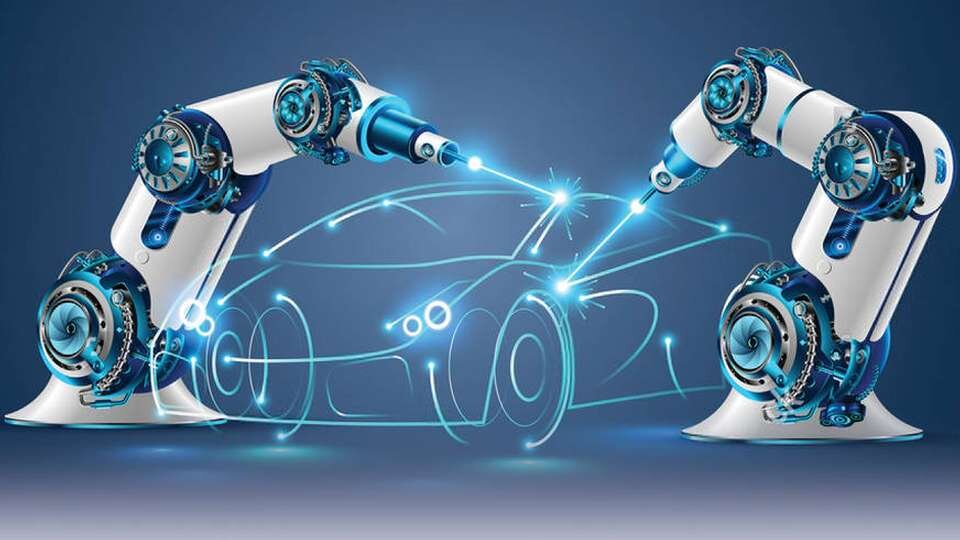

How Technology is Changing the Automotive Industry
The automotive industry has undergone significant transformations over the years, with technological advancements playing a crucial role in shaping its future. From electric vehicles to autonomous driving, the industry is witnessing a seismic shift in the way cars are designed, manufactured, and used. In this article, we will explore the impact of technology on the automotive industry, highlighting the key trends, innovations, and challenges that are redefining the sector.
Electrification: The Rise of Electric Vehicles
One of the most significant trends in the automotive industry is the shift towards electrification. Electric vehicles (EVs) are gaining popularity, driven by government regulations, decreasing battery costs, and increasing environmental concerns. According to the International Energy Agency (IEA), the number of EVs on the road is expected to reach 140 million by 2030, up from just 2 million in 2018.
The rise of EVs has forced traditional automakers to rethink their business models and invest heavily in electric technology. Companies like Volkswagen, General Motors, and Ford are committing billions of dollars to EV development, while new players like Tesla and Rivian are disrupting the market with innovative products.
Autonomous Vehicles: The Future of Transportation
Autonomous vehicles (AVs) are another area where technology is transforming the automotive industry. AVs use a combination of sensors, cameras, and artificial intelligence (AI) to navigate roads without human intervention. The technology has the potential to revolutionize transportation, reducing accidents, increasing mobility, and improving traffic flow.
Companies like Waymo, Cruise, and Argo AI are leading the charge in AV development, with many auto manufacturers partnering with them to integrate the technology into their vehicles. The market for AVs is expected to reach $7 trillion by 2050, according to a report by Strategy Analytics.
Connectivity and IoT: The Connected Car
The increasing use of connectivity and the Internet of Things (IoT) is enabling vehicles to become an integral part of the digital landscape. The connected car is equipped with advanced sensors, navigation systems, and infotainment systems that can communicate with other vehicles, infrastructure, and the cloud.
This connectivity enables features like vehicle-to-vehicle (V2V) communication, vehicle-to-infrastructure (V2I) communication, and remote diagnostics. Companies like Qualcomm, Intel, and AT&T are investing heavily in connected car technology, which is expected to become a standard feature in new vehicles.
Artificial Intelligence: The Brain behind Autonomous Vehicles
Artificial intelligence (AI) is playing a crucial role in the development of autonomous vehicles. AI algorithms are used to process the vast amounts of data generated by sensors and cameras, enabling vehicles to make decisions in real-time.
Companies like NVIDIA, Intel, and Google are developing specialized AI chips and software for the automotive industry. AI is also being used in other areas, such as predictive maintenance, quality control, and customer service.
3D Printing: Revolutionizing Manufacturing
Additive manufacturing, also known as 3D printing, is transforming the way vehicles are manufactured. The technology enables the production of complex parts and components with increased accuracy and reduced waste.
Companies like General Motors, Ford, and Volkswagen are using 3D printing to produce parts such as engine components, dashboard trim, and exterior trim. The technology is also enabling the creation of customized vehicles and reducing tooling costs.
Blockchain: Securing the Supply Chain
Blockchain technology is being used to secure the supply chain in the automotive industry. The decentralized ledger technology enables transparent and tamper-proof tracking of parts, components, and vehicles across the supply chain.
Companies like Ford, General Motors, and BMW are using blockchain to track the source of materials, ensure compliance with regulations, and reduce counterfeiting.
Challenges and Opportunities
While technology is transforming the automotive industry, there are several challenges and opportunities that need to be addressed.
- Cybersecurity: The increasing use of connectivity and autonomous technology is creating new cybersecurity risks. Hackers can gain access to vehicles’ systems, compromising safety and security.
- Regulations: Governments need to create regulations that support the development of autonomous vehicles, electric vehicles, and connectivity.
- Skilled Workforce: The industry needs a skilled workforce with expertise in AI, IoT, and cybersecurity to develop and implement new technologies.
- Sustainability: The industry needs to focus on sustainability, reducing emissions, and promoting environmentally friendly practices.
Conclusion
The automotive industry is undergoing a significant transformation, driven by technological advancements in electrification, autonomous vehicles, connectivity, AI, 3D printing, and blockchain. While there are challenges to be addressed, the opportunities are vast, and the industry is poised for growth and innovation.
As the industry continues to evolve, we can expect to see new business models emerge, new players enter the market, and traditional automakers adapt to the changing landscape. One thing is certain – technology will continue to play a crucial role in shaping the future of the automotive industry.
References:
- International Energy Agency (IEA). (2020). Global EV Outlook 2020.
- Strategy Analytics. (2020). Autonomous Vehicle Market Forecast 2020-2050.
- Qualcomm. (2020). 2020 Automotive Trends Report.
- NVIDIA. (2020). NVIDIA Drive: The AI Platform for Autonomous Vehicles.
- Intel. (2020). Autonomous Driving: Intel’s Role in the Future of Transportation.




